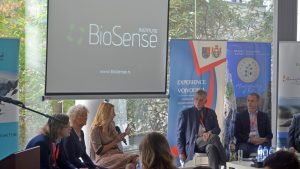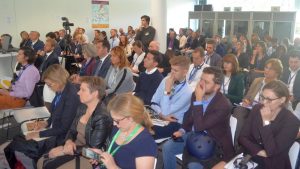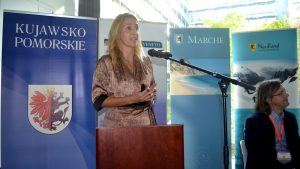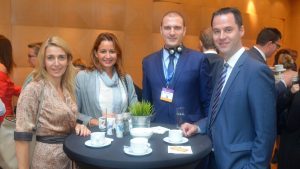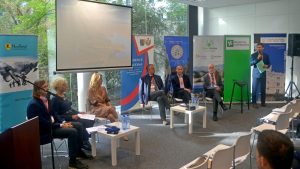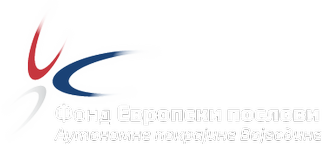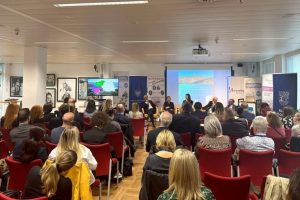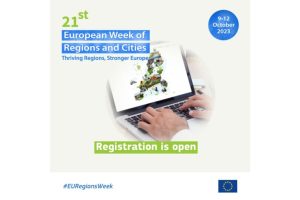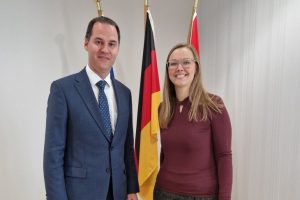Workshop “Addressing the challenges of the 21st century through innovative measures” held within the EWRC
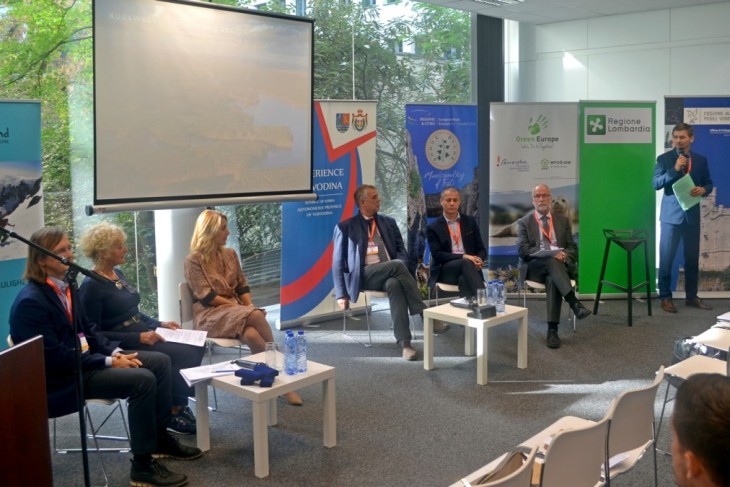
The workshop “Addressing the Challenges of the 21st Century through Innovative Measures” has been held in Brussels within the framework of the European Week of Regions and Cities (EWRC). Among the organizers was also the Vojvodina Office in Brussels and the BioSense Institute of Novi Sad held a presentation within its framework.
In the first part of the workshop, the participants were addressed by Fabio Urbinati (Regional Council, Marche Region, Italy), Roberto Ciambetti (Regional Council of Veneto, Italy), Peter Kaiser (Governor of Carinthia, Austria), Raffaele Cattaneo (Minister for Environment and Climate Change of Lombardy Region, Italy), Roberti Pierpaolo (Autonomous Regional Government of Friuli Venezia Giulia, Italy), Roberto Viola (European Commission Director General DG Connect) and Christos Pappous (Mayor, Municipality of Fyli and Ano Liosia, Greece).
The welcome speeches were followed by a panel discussion about the challenges of the 21st century that Europe was facing, as well as the answers through innovative measures. Carlo Polidori presented the Synergic Circular Economy across European Regions – SCREEN project. The project began in November 2016 and there are 17 European regions participating in it. Polidori pointed out that the project was an example of how circular economy supported the cohesion policy. After that, Prof. Susanne Elsen, Free University of Bolzano, presented social agriculture. It is a principle in which social needs are put into the context of agriculture, i.e. allowing the target group access to health and social services through agriculture, with an emphasis on mountainous areas and the Alps. Marek Swinarski, Gdansk Water Utilities Ltd, presented the innovations in water and wastewater management using the principle of circular economy. The innovations in Poland, with examples of application of biotechnology, were presented by Michal Korolko, Agency of the Regional Development in Torun Regional Association Ekip, Kujawsko Pomorskie Region. Terje Stabaek, Nordland County, Norway, gave an example of how circular economy was applied in industrial clusters in Norway, as a non-EU MS.
The greatest interest of the audience was attracted by the presentation of the BioSense Institute held by Prof. Vesna Crnojević Bengin. A unique multidisciplinary mix of agricultural production and IT technology is what makes Biosens unique in Europe, and the field where Vojvodina is a leader in European frameworks.
The workshop was also attended by Vidosava Enderić, Director of the European Affairs Fund of AP Vojvodina, Srđan Mačkić, Head of Vojvodina European Office, Nemanja Davidović, Head of Department for Cooperation with European, Regional and International Institutions and Đorđe Cicović, Vojvodina European Office in Brussels.
